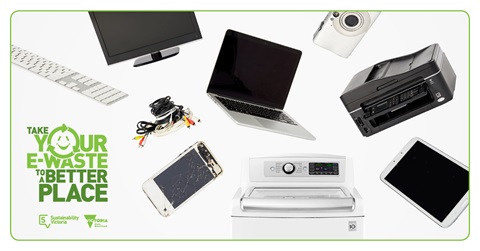E-waste disposal changes coming
Published on 05 June 2019

Gannawarra Shire Council residents are reminded that as of Monday, 1 July 2019, e-waste materials that no longer work or are used will be banned from being placed in kerbside rubbish bins and landfills throughout Victoria.
The State Government announced last year plans for all e-waste - which refers to any item with a plug, battery or cord that is no longer working or wanted – to be collected at drop-off points throughout Victoria, providing $15 million to help local councils upgrade their e-waste storage and collection facilities.
“E-waste covers a whole range of items, such as computers, mobile phones, microwaves, printers, televisions, heaters and gaming consoles,” Mayor Lorraine Learmonth said.
“The 1 July ban was introduced in an effort to recover more of the valuable materials left inside e-waste that can be safely removed and reused. It will also help reduce the environmental damage caused by the disposal of old electronic items such as televisions, phones and laptops into landfill site.”
Council has been proactive in preparing the community for the coming e-waste ban, with e-waste collection sheds at the Cohuna and Kerang Transfer Stations completed in February.
Both Transfer Stations accept electronic items that requires batteries to operate, or has a cord and plug. A $25 charge applies for each computer monitor, laptop or television handed in as these items contain toxic chemicals – such as barium, phosphor, lead and hexavalent chromium – which require special handling.
To help further reduce landfill, a new recycling trailer is based at the Lalbert Transfer Station, with improvements made at the Quambatook Transfer Station to accommodate e-waste and recycling items.
“E-waste is growing three times faster than general municipal waste in Australia, due to increased technology trends, reduced product lifespan and consumer demand for new products,” Mayor Learmonth said.
“E-waste contains valuable materials that we can recover and reuse, and hazardous materials, which can harm the environment and human health.”
Further details regarding Council’s e-waste services are available online.